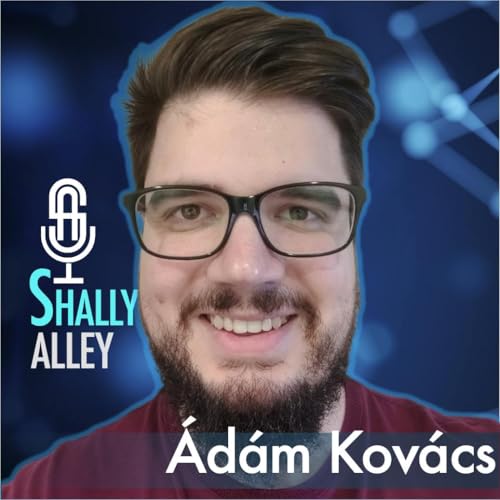Ashley Surratt, Head of Talent Acquisition at Black & Veatch, went from recruiting at AWS to sourcing engineers who build power grids, water systems, and data centers. The shift completely redefined what "difficult sourcing" actually means. Think tech recruiting is hard? Try finding a project manager who needs 10 years designing wastewater treatment plants before they're even qualified to manage one. In this episode we talk about the gap between tech and blue collar sourcing, why "project manager" means something totally different in infrastructure, and how Ashley's team gets creative when LinkedIn doesn't work. You'll hear the unicorn hunter playbook for industries where traditional channels fail, why trade schools beat college degrees, and how certifications and field experience force you to think 10 moves ahead. Plus, Ashley's 1% daily improvement philosophy and why it compounds faster than any Boolean string. KEY TAKEAWAYS ➡ Infrastructure recruiting is exploding due to massive government spending, but the talent pipeline hasn't caught up. ➡ When LinkedIn fails, source from trade association directories, certification boards, competitor postings, and job fairs at project sites. ➡ Skilled trades run on apprenticeships, not degrees. Understand how electricians, welders, and HVAC techs enter and progress. ➡ Boolean hits a wall in blue collar roles. Work backward from certifications, union memberships, or project lists. ➡ 1% daily improvement triples your effectiveness yearly. Continuous improvement beats big swings. ➡ Infrastructure talent sees their work in the real world. Tangible impact attracts different candidates. ➡ Ashley won SourceCon's Sourcing Anonymous, proving creativity beats a massive LinkedIn Recruiter license. CHAPTERS 00:00 – Intro & Technical Difficulties00:17 – Meet Ashley Surratt from Black & Veatch01:38 – What is EPC and Why Infrastructure Recruiting Matters03:08 – The Biggest Myth About Switching Industries05:08 – Why "Project Manager" Means Something Totally Different in Construction08:42 – Creative Sourcing When LinkedIn Fails12:15 – Trade Schools, Apprenticeships, and the Skilled Trades Pipeline18:30 – Boolean's Limits in Blue Collar Recruiting24:50 – Working Backward from Certifications and Licenses31:20 – How to Source for Roles That Require Hands-On Field Experience38:10 – Why Infrastructure Talent Sees Their Work in the Real World43:45 – Ashley's Sourcing Anonymous Win and Lessons Learned48:20 – The Power of 1% Daily Improvement52:31 – Next Guest Recommendations54:00 – Closing Question: How Can You Improve 1% Today? SOUND BITES "I'm like, well, project managers are everywhere. What do you talk to? And then I got here and it was really estimation and having to have this giant, very niche engineering background, like, 10 years of designing the wastewater treatment before you even start managing the project." "I'm a really big believer in continuous improvement even if it's just 1%. What could I have done differently to be better tomorrow?" GUEST INFO Name: Ashley SurrattCompany: Black & Veatch (EPC firm focused on water, power, and infrastructure)LinkedIn: https://www.linkedin.com/in/ashleysurratt/Expertise: Head of Talent Acquisition specializing in engineering, skilled trades, and infrastructure recruiting. Former AWS sourcing leader. SourceCon Sourcing Anonymous winner. Subscribe on: Spotify | Apple | iHeart Radio | Pandora | Amazon Music About Shally: srcn.co AskShally GPT: srcn.co/sgpt The Sourcing Method Book: srcn.co/tsm The AI Browser Toolkit: srcn.co/aib1 Follow Shally on LinkedIn https://srcn.co/follow LinkedIn Feed: https://srcn.co/feed Facebook Group: https://srcn.co/fb YouTube Channel: https://srcn.co/yt Instagram: https://srcn.co/ig
Voir plus
Voir moins
 Oct 31 20251 h et 1 min
Oct 31 20251 h et 1 min 56 min
56 min Oct 17 202556 min
Oct 17 202556 min Oct 10 20251 h et 1 min
Oct 10 20251 h et 1 min 1 h et 1 min
1 h et 1 min Sep 19 202556 min
Sep 19 202556 min 1 h et 2 min
1 h et 2 min 1 h et 5 min
1 h et 5 min
